SAAD Symposium & AGM
Saturday 25 September 2021
09:30
Welcome and Introduction
Stephen Jones
SAAD President (2018 - 2021)
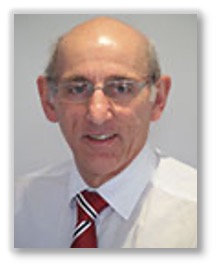
Stephen is Clinical Lead for Conscious Sedation in the School of Dentistry, University of Central Lancashire. In his previous role as a Clinical Director he was involved in the organisation and development of dental sedation within the Trust-based dental service in Cumbria. He gained the Diploma in Conscious Sedation from the University of Newcastle upon Tyne in 1997.
09:35
'Sedating the older patient - what should we be doing differently?'
Mili Doshi
Consultant in Special Care Dentistry
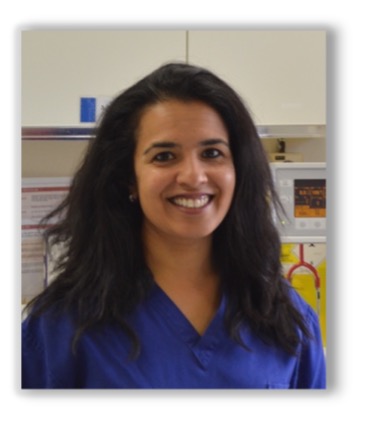
Mili qualified from Guy’s Hospital in 2001 and then gained a MSc in Special Care and Sedation in 2006 . She was appointed in 2014 as a Consultant in Special Care Dentistry at Surrey and Sussex Health Care NHS trust and the Royal Hospital for Neuro-disability in London.
Mili has always been very committed to dental training and improving oral health services for adults with additional needs. Mili has a special interest in sedation and general anaesthesia in Special Care Dentistry. She is Co-Chair of the Paediatric and Special Care Dentistry managed clinical network for Kent, Surrey and Sussex.
In 2015, Mili developed the Health Education England national initiative ‘Mouth Care Matters’ to improve the oral health of adults in hospitals that focused on improving standard of mouth care and integrating oral health and general health. She continues to drive this work forwards.
Mili is past president of the British Society of Gerodontology and is the current Patron of the Society for British Dental Nurses. Mili was awarded an MBE in 2018 for service to NHS dentistry.
Learning Objectives
- Increase awareness of why more older people are having dental treatment under conscious sedation
- Consider ways in which the physiological changes of ageing can impact on sedating this older group.
- Enhance understanding of the relevant medical and social factors that are important to assess when planning to sedate older people
- Raise awareness of how to modify sedation regimes to provide safe care
Abstract
The population of older people in the United Kingdom is growing. Many older people will have had extensive dental treatment throughout their lifetime and require dental intervention in later life. While many people will continue to remain healthy in older age, there will also be a growing number who develop chronic systemic diseases and cognitive impairments or have dental anxiety that impacts on their ability to accept dental care under local anaesthesia alone. For these patients, good behavioural management together with conscious sedation will be needed. Dental teams must consider pharmacological and physiological changes in the older person when planning dental care under sedation and make adjustments when necessary. A comprehensive assessment of older people, including medical, social and dental histories, will help plan the most appropriate sedation technique and environment for their care.
10:20
'Domiciliary Anaesthesia - just a dream?'
Rebecca Mawer
Consultant Anaesthetist, with an interest in Additional Needs and Paediatrics
Royal Cornwall Hospitals Trust

Rebecca graduated from Nottingham University in 1989. Her paediatric anaesthetic training was completed in Southampton and Great Ormond Street and she has worked as an anaesthetist with a specialist interest in paediatrics in Cornwall since 1998.
Her commitment to patients with Additional Needs was developed during her training, when she developed her skills with the help of amazing, dedicated oral surgeons.
She has published in the anaesthetic forum and this year written the Learning Difficulties Chapter in the Oxford Handbook of Anaesthesia.
An open mind, a love for education, communication and open for a challenge she has developed access to medical services in Cornwall to be truly inclusive.
She is currently College Tutor, Sedation Lead for the Trust, performs advances sedation in dental practice and is an internal and external medical appraiser.
Learning Objectives
- Rationale for domiciliary sedation and anaesthesia
- Techniques, team working and human factors
- Governance, case selection and risk assessment
- Challenges and learning points
Abstract
We regard the NHS as an establishment geared for providing care for the ill and infirm, but how many of the population are overlooked or unseen because of their inability to access services? Far from being a service for all, it is a service restricted to those who can physically and psychologically access it.
We have developed a system of allowing Additional Needs patients access to appropriate medical services, whilst ensuring the governance structure we would expect of any novel service. Patient selection, Best Interest Meetings and discussion points with all associated parties are a formative part of the decision making. Multiagency involvement and excellent communication is of paramount importance to ensure safe treatment and transit of patients without exposing patients to unnecessary risks.
Holistic clinical skills, often with reliance on history and clinical observation can be a refreshing change from the reliance on results of investigations for making risk assessments, and non clinical skills including education and human factors transfer well from the secondary care environment into the home.
We have found this small volume service to be highly appreciated by families and carers, commissioning bodies, in addition to the clinicians caring for these patients.
11:00
Morning Break
Time to take a look at the excellent poster presentations displayed in the Atrium!
Click here to read the abstracts.
11:30
'New drugs on the block - Penthrox'
Hugo Dowd
Consultant in Paediatric & Adult Emergency Medicine
Honorary Lecturer In Emergency Medicine
Chair of Resuscitation Committee
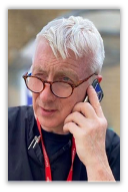
Hugo has a very particular set of skills. Skills acquired over a very long career. Skills that make him able to convince children to sit still whilst he cleans and stitches up their faces. He has a breadth of experience in sedation, regional anaesthesia, anxiety and hypnosis. His interest in clinical education has given him many opportunities. Teaching anatomy to both dental and medical students at Queen's University Belfast, Human Factors training at Royal College of Surgeons in Dublin. Hugo serves on the faculty on the ATLS instructors course at RCS London. He has taught all aspects of Emergency Medicine throughout the United Kingdom, Europe, Africa and Central America.
Sarah McNally
Acting Senior Dental Officer
Specialist Dental Unit
Northern Health and Social Care Trust
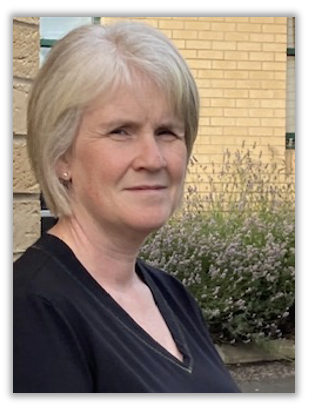
Sarah qualified from Bristol University in 1997. Following completion of GPT training Sarah held positions in Hospital and Community Dental Service in the South West of England. These included Dental Officer and Senior Dental Officer positions until 2011. She obtained her Post Graduate Diploma in Conscious Sedation in Dentistry from Newcastle University in 2008. In 2011 Sarah relocated back to Northern Ireland and joined the Northern Health & Social Care Trust. She is involved with the provision of care within sedation and GA services for children and adults with special requirements within the Northern Health and Social Care Trust.
Sinead Preston
Senior Dental Officer
Specialist Dental Unit
Northern Health and Social Care Trust

Sinead is a Senior Dental Officer Northern Health and Social Care Trust 2013 - present undertaking care for patients with complex needs under GA and IV sedation
Sinead qualified Queen’s Belfast in 1992. She obtained a Msc Dental Public Health Manchester University 2000. After returning to Belfast she obtained her Diploma in Post-Graduate Clinical Education QUB 2014. She has worked as a Dental Officer in Manchester and Senior Dental Officer in North Wales. She has undertaken clinical attachments in paediatrics Manchester Dental Hospital, Sedation Liverpool and Restorative QUB. She has been involved in undergraduate teaching and has held Honorary Lecturer posts with Manchester, Cardiff and QUB. Her main other interest is behaviour management and sedation. In 2018/19 she instigated an IV sedation Service in the Northern Trust for Special Needs patient
Learning Objectives
- Consideration of an alternative treatment technique
- An introduction to what may be possible with Penthrox in paediatric dentistry
- Introduction to the patient journey to treatment
Abstract
Dental General Anaesthetic (DGA) is the most common reason for a hospital admission in children, approximately 46,500 children and young people under 19 were admitted to hospital for a primary diagnosis of dental caries in 2013–14 in England. In Northern Ireland in 2017, 5,122 children underwent a DGA resulting in 22,699 teeth being extracted.
According to the BDA, tooth exodontia is the number one reason for paediatric hospital admission in NI.
During COVID-19 pandemic access to dental GA became limited. Alternative modalities of appropriate pain and anxiety control was required to address unmet need.
Penthrox is an inhaled vapour that is licensed in the UK, for conscious adult patients suffering moderate to severe acute traumatic pain. It is used extensively in Emergency Departments and in the prehospital arena. It is licensed in Australasia for all ages and in Republic of Ireland children ≥5
Parents/careers of children aged 5-16 years, who had been on the Northern Health and Social Care (NHSCT) GA paediatric extraction waiting list, were invited to participate in a pilot study involving an unlicensed agent for paediatric dental extractions, under the direct supervision of a Paediatric Emergency Medicine Consultant.
Penthrox was successful as an analgesic anxiolytic agent in children requiring dental extractions and can be administered by dentists in an outpatient environment. Consequently, this warrants continuation of the study.
12:20
'New drugs on the block - Remimazolam'
Bryan Kerr
Consultant in Special Care Dentistry
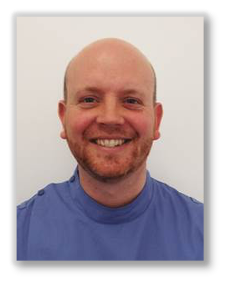
Bryan was inspired by his undergraduate teaching in Sedation at Glasgow Dental Hospital and won the SAAD student essay prize in 2003. He then when on to pursue a career focused on the delivery and teaching of conscious sedation techniques.
He completed a MSc in Sedation and Special Care Dentistry at King's College London (KCL) and is now a Consultant at Guy's Hospital, London.
He provides training in conscious sedation to undergraduate and postgraduate dentists at KCL. Bryan is the current chair for DSTG and in the SAAD teaching faculty.
Currently, Bryan works as a consultant in the Department of Sedation and Special Care Dentistry, Guy’s Hospital, King’s College London Faculty of Dentistry, Oral & Craniofacial Sciences.
Learning Objectives
- Update on clinical trials
Abstract
To follow
12:40
SAAD Prizes and Announcements
12:50
Lunch
Including SAAD AGM
14:00
'CQC - is your practice inspection ready?'
Your conflicts and concerns answered
Jonathan Weeks
CQC inspector based in the north of England
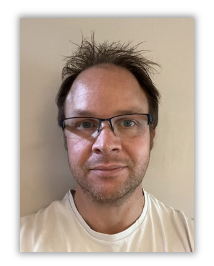
Jonathan qualified from Manchester University in 2003 and then went on to complete VT training in Sheffield. He worked in NHS general practice in Sheffield until 2015 before moving to the CQC. He was also a FD educational supervisor between 2013 and 2015. Since moving to the CQC Jonathan has been predominantly inspecting high street dental practice, and has also been involved in inspections of community dental services and dental hospitals. He was also part of the “Smiling matters: oral health care in care homes” project which was published in June 2019. Jonathan's role at the CQC involves inspecting, monitoring and rating (where applicable) providers of health and social care. Within CQC he has special interests in Legionella, radiography and the provision of conscious sedation. Outside of CQC Jonathan also works for the Premier League as a compliance officer focussing on the reducing the impact of Covid-19 on the running of the league.
Learning Objectives
- To describe any changes to the CQC’s approach to inspecting primary dental services
- To describe the role of CQC when inspecting services which provide conscious sedation.
- To describe the common areas where services fall down in relation to conscious sedation.
Abstract
To follow
14:30
'The Enjoyable Dentistry TechniqueTM. A paradigm shift in the patient dental experience'
Bashar Al-Naher
Principal of the Caredental Group
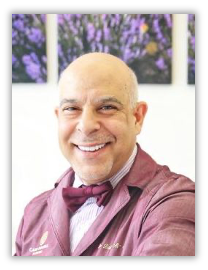
Bashar qualified from Guys hospital in 1984, and carried out a master’s degree in clinical psychology in the field of hypnosis and was engaged in a serious research of psychology. He developed The Enjoyable Dentistry Technique as a result of his research in psychology and conscious sedation. Bashar has been using the technique with tremendous effect for the last 25 years. The Caredental group has won the private dentistry award for best practice for the treatment of nervous patients 4 years in a row as a result of the technique.
Learning Objectives
-
An introduction to what is possible in transforming the patient dental experience from painful to blissful.
-
An introduction to how best to treat nervous and phonic patients.
-
An introduction to how psychology affects the patient dental experience.
Abstract
The presentation deals with how the patient dental experience can be shifted from that of being terrifying for a phobic to being bearable and even totally pain free, relaxing and comfortable experience. Alternatively, uncomfortable experiences for non phobic patients can be transformed into positively enjoyable and even blissful experiences. This can all be achieved using the application of The Enjoyable Dentistry Technique. The technique is fully scientifically validated through a Masters Degree research into the technique and the research too is explained. The main guidelines of the technique is then explained along with the range of patients‘ comments and responses after having experienced the technique. It’s not often that a paradigm shift is achieved in dentistry. We believe that the Enjoyable Dentistry Technique constitutes a genuine paradigm shift in the patient dental experience of dentistry.
15:00
'Sedation and the obesity pandemic'
Damien Reilly
Consultant in Special Care Dentistry
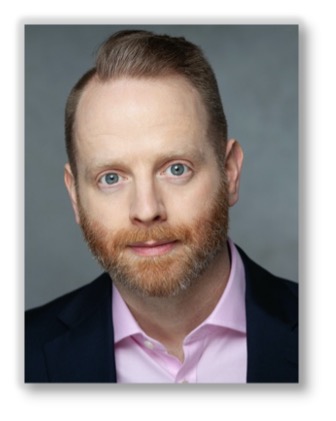
Damien is a Consultant in Special Care Dentistry. He works between East Surrey Hospital and The Royal Hospital for Neuro-disability, in London. He has a particular interest in dental management of patients with obesity.
Learning Objectives
- Defining and measuring obesity
- Discuss obesity and dental sedation
- Suggestions for management
Abstract
To follow
15:30
'SAAD responds to the challenges of the 20's'
Carole Boyle
Consultant in Special Care Dentistry
SAAD Course Director
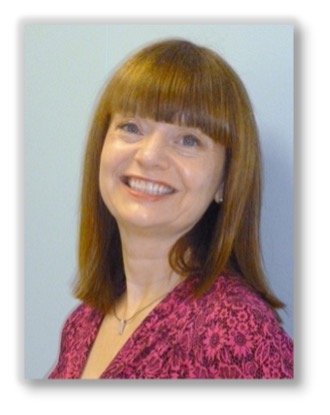
Carole is a Consultant in Special Care Dentistry at King’s College London Dental Institute, Guy’s, King’s College and St Thomas’ Hospitals . Her particular interests are using sedation for people who require special care, and teaching sedation both to undergraduates and postgraduates. She is the training programme director for Special Care Dentistry London Deanery and manages the Special Care GA service at GSTT.
Learning Objectives
- To present developmental plans for the SAAD National Course
- To outline the expansion of the SAS and SASN schemes
Abstract
To follow
15:45
'SAAD PhD update - Evaluating dental anxiety children having general anaesthesia/inhalation sedation'
Marija Borisovaite-Petruliene
PhD Student, Leeds
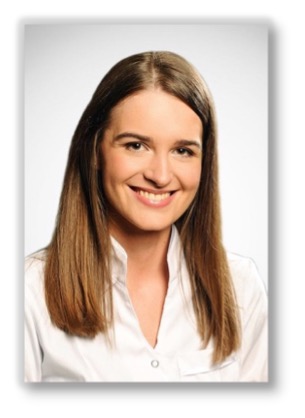
Marija Borisovaite-Petruliene is a certified paediatric dentist, who has been working in both the private and public sector. She has a Masters in Paediatric Dentistry from Lithuanian University of Health Sciences and currently is a PhD student in University of Leeds.
Marija has written many articles on the topic of paediatric dentistry, including dental traumas, oral breathing and other deleterious habits, management of white spot lesions, impact of electronic media to children’s dental health, however she is extremely interested in managing dental fear and anxiety in paediatric dentistry.
As a young specialist, with an interest in anxious child‘s psychology, she has been recognised as a speaker in Lithuania. Marija has started her career presenting the knowledge of involving Ericksonian communication and dealing with anxious paediatric patients in daily dentistry to help other dental professionals.
Apart from being a full-time PhD student, she is dedicated to share her knowledge not only on dental fear management, but also on building the trust in the dentist-patient relationship by writing a book for both parent and children.
Learning Objectives
-
Have an understanding of the relationship between physiological parameters (Blood Volume Pulse, Acceleration, Heart Rate, Temperature) and dental anxiety
-
Recognise the necessity to assess dental anxiety before, during and after treatment
-
Identify the best way to evaluate dental anxiety in children of certain age
Abstract
Dental anxiety and fear of dental treatment in children are recognised as a public health dilemma in many countries since it can lead to impeding or even precluding successful dental care. Such a condition represents a problem to both dentists and patients considering anxiety and fear may result in management difficulties in dental clinic. One of the pharmacological management techniques for dental anxiety is general anaesthesia, which is also the most common modality for managing uncooperative children. However, concerns due to its capability to cause harmful effects as nausea, vomiting, the risk of significant morbidity and occasionally mortality in children have been raised.
It is widely accepted that conscious sedation is safer than general anaesthesia and should be considered as the first-choice management option instead of general anaesthesia. Inhalation conscious sedation represents an effective and safe method to obtain cooperation, even in very young patients, and it could reduce the number of paediatric patients referred to hospitals for general anaesthesia.
Although multiple questionnaires are available for assessing anxious and phobic patients, none of these existing instruments has been regarded as a gold standard, as they have their own limitations and it is apparent that literature is lacking to show long-term effects on the reduction of dental anxiety and future quality of dental treatment. Currently, there are no specific measures on long-term effect of sedation techniques on dentally anxious patients, and this is therefore an important area for future research.
The aim of this study is to evaluate the short and long-term effects of nitrous oxide/oxygen sedation as compared with dental general anaesthesia on children’s future level of dental anxiety and acceptance of dental treatment.
In order to assess children’s anxiety before, during and after the treatment, E4 wristband (to record the physiological parameters) and newly designed questionnaire will be used. Since similar validated questionnaire was not available, expert committee was established and new questionnaire was designed. It was piloted with paediatric patients in Leeds Dental Institute and amendments were made after the pilot study due to the response of the participants.
In conclusion, the new questionnaire is children-friendly and promising: it is interesting, relevant and highly accepted by respondents.
16:00
'Trainee to trainer - the transition'
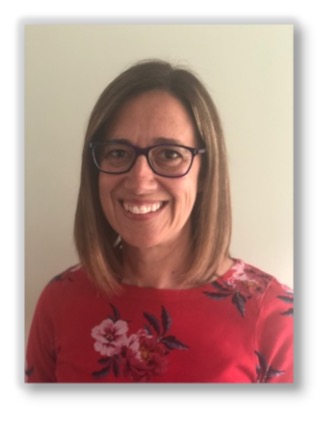
The trainer: Caroline Frolander
Caroline is a Specialist in Special Care Dentistry and Clinical Director of the Solent NHS Trust Special Care Dental Service covering Hampshire and the Isle of Wight.
Having graduated from Guy’s Hospital in the year 2000, Caroline gained experience providing dental care under conscious sedation in the Community Dental Service and Hospital Service before returning to Guys and completing an MSc in Sedation and Special Care in 2005.
A sessional secondment to the Department of Special Care presented an opportunity to contribute to supervision of undergraduate and postgraduate diploma students, and since then Caroline has enjoyed taking part in teaching and supervision on both formal and informal programmes.
In her current role and formerly as Clinical Lead for Sedation within the same organisation, Caroline has strived to grow the sedation team and believes that safe and effective sedation lies at the heart of Special Care Dentistry. Caroline worked with colleagues to set up an accredited in house Inhalation Sedation Course shortly after publication of the IACSD Guideline in 2015, to ensure that all members of the clinical dental team within the service had the opportunity to add this skill to their portfolio.
Caroline and her colleagues are working with the University of Portsmouth Dental Academy to set up a PGCert in Conscious Sedation, and will deliver the supervised clinical experience element of the programme within several sites across Solent NHS Trust.
Sunny Sharma BDS (Hons) Msc MFDS MPharm (Hons) MRPharm
StR in Special Care Dentistry
Clinical Lead for North Hampshire and Clinical Lead for Sedation at Solent NHS Trust
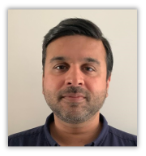
The trainee: Sunny Sharma
Sunny qualified from the University of Manchester and The Institute of Dentistry at Barts and The London School of Medicine and Dentistry.
After working in General Dental Practice, he trained as a Senior House Officer in Oral Surgery, Dental and Maxillofacial Radiology and Oral Medicine at Guy's and St Thomas' NHS Foundation Trust.
Whilst training as a Dental Core Trainee in Oral Surgery at Guy's hospital, he attained the Diploma of Membership of the Faculty of Dental Surgery of The Royal College of Surgeons of Edinburgh.
Following this he worked as a Specialty Dentist in Oral Surgery and Special Care Dentistry. Subsequently he was appointed the post of London Deanery Specialty Registrar in Special Care Dentistry at Guy's and St Thomas' NHS Foundation Trust.
After completing a MSc in Sedation and Special Care Dentistry at King's College London Dental Institute, he became a Senior Dental Officer at Solent NHS Trust.
Currently Sunny is the Clinical Lead for North Hampshire and Clinical Lead for Sedation at Solent NHS Trust. He is also a member of SAAD, BSDH, RCSEd and RPSGB and an Examiner for The Royal College of Surgeons of Edinburgh.
Learning Objectives
-
To describe experiences of sedation training from a trainee and trainer perspective
-
To describe the journey from trainee to trainer
-
To explain the responsibilities of a trainer
-
To describe the pitfalls in trainee/trainer relationships
-
To highlight the opportunities available to maintain competence and confidence
Abstract
To follow
Close of the 2021 Symposium
Sadie Hughes
SAAD President (2021-2024)
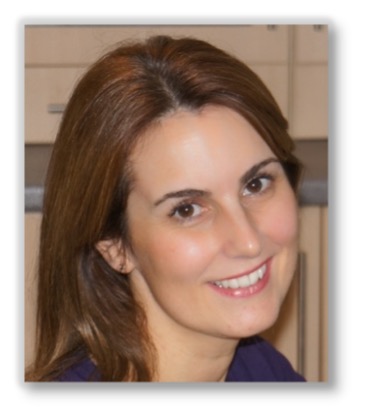
Sadie Hughes is a Specialist in Special Care Dentistry and Sedation Lead for Hertfordshire Special Care Dental Service. She completed an MSc in Sedation and Special Care Dentistry in 2003 at King’s College London Dental Institute. Her clinical interests include sedation and behavioural management for adolescents requiring dental treatment and the dental management of adults with special care requirements.